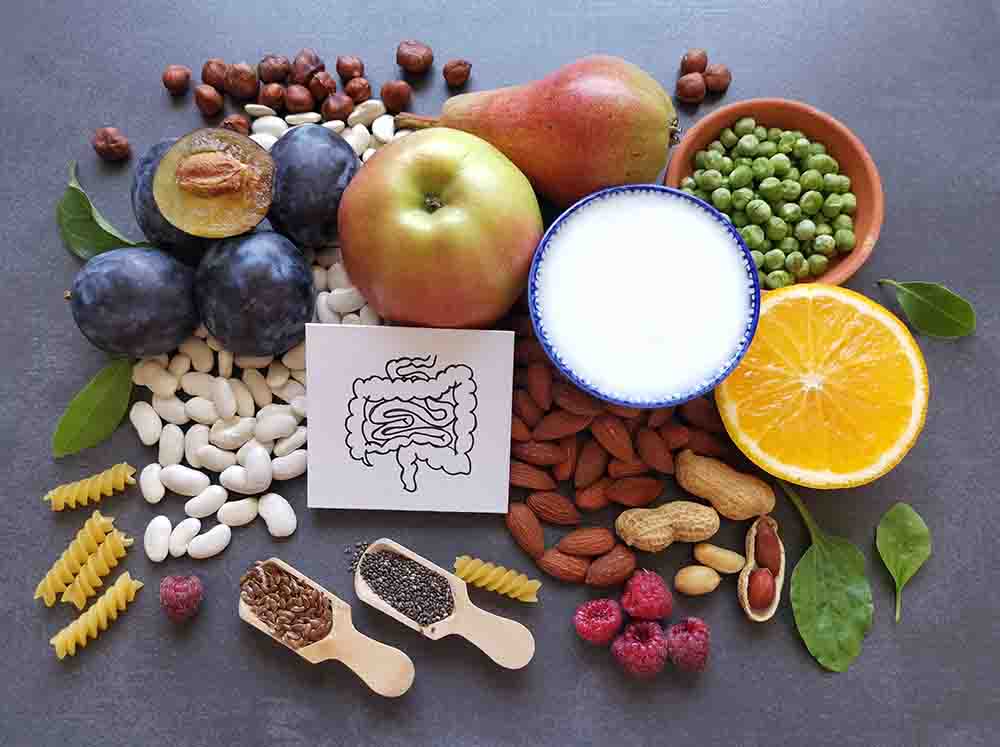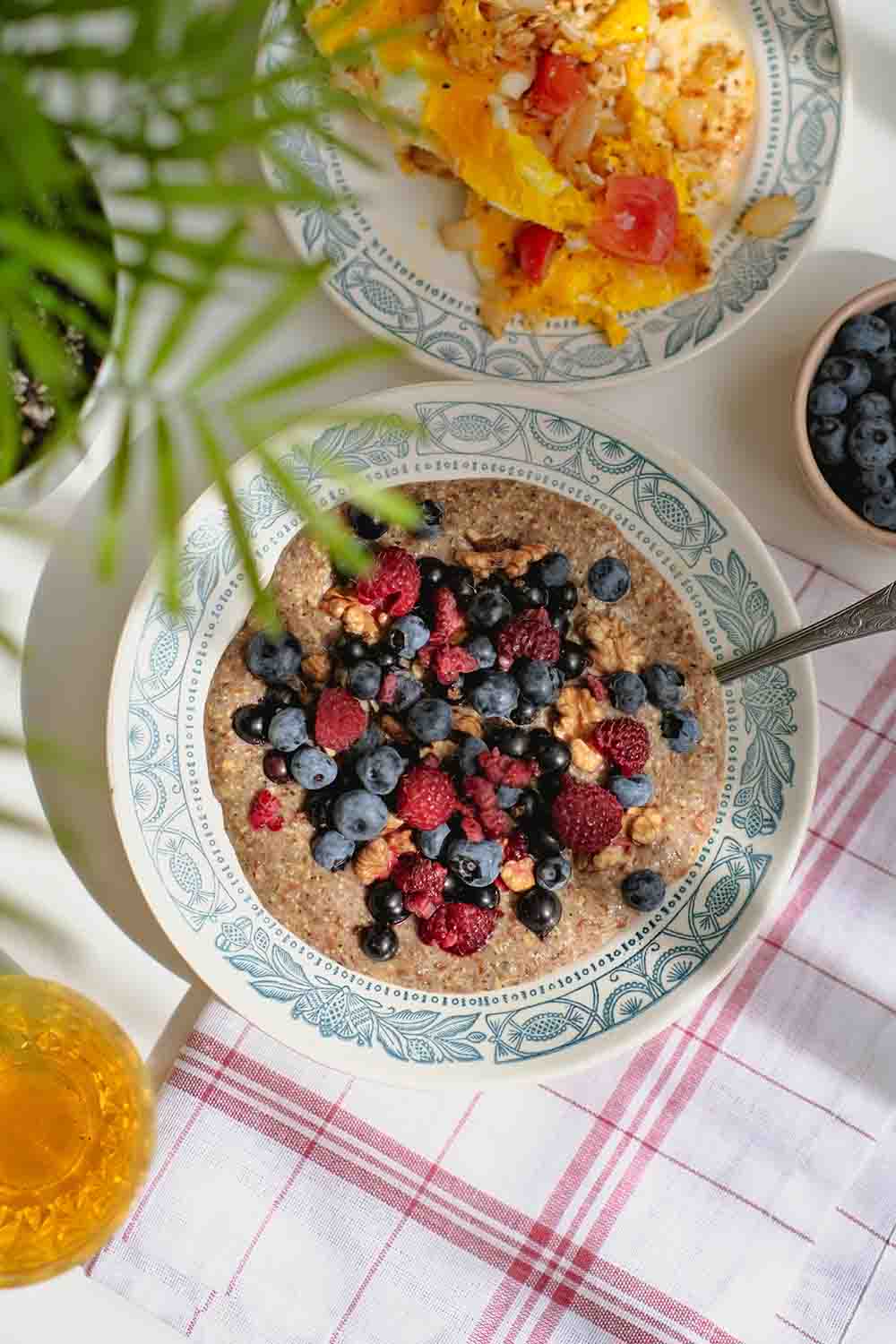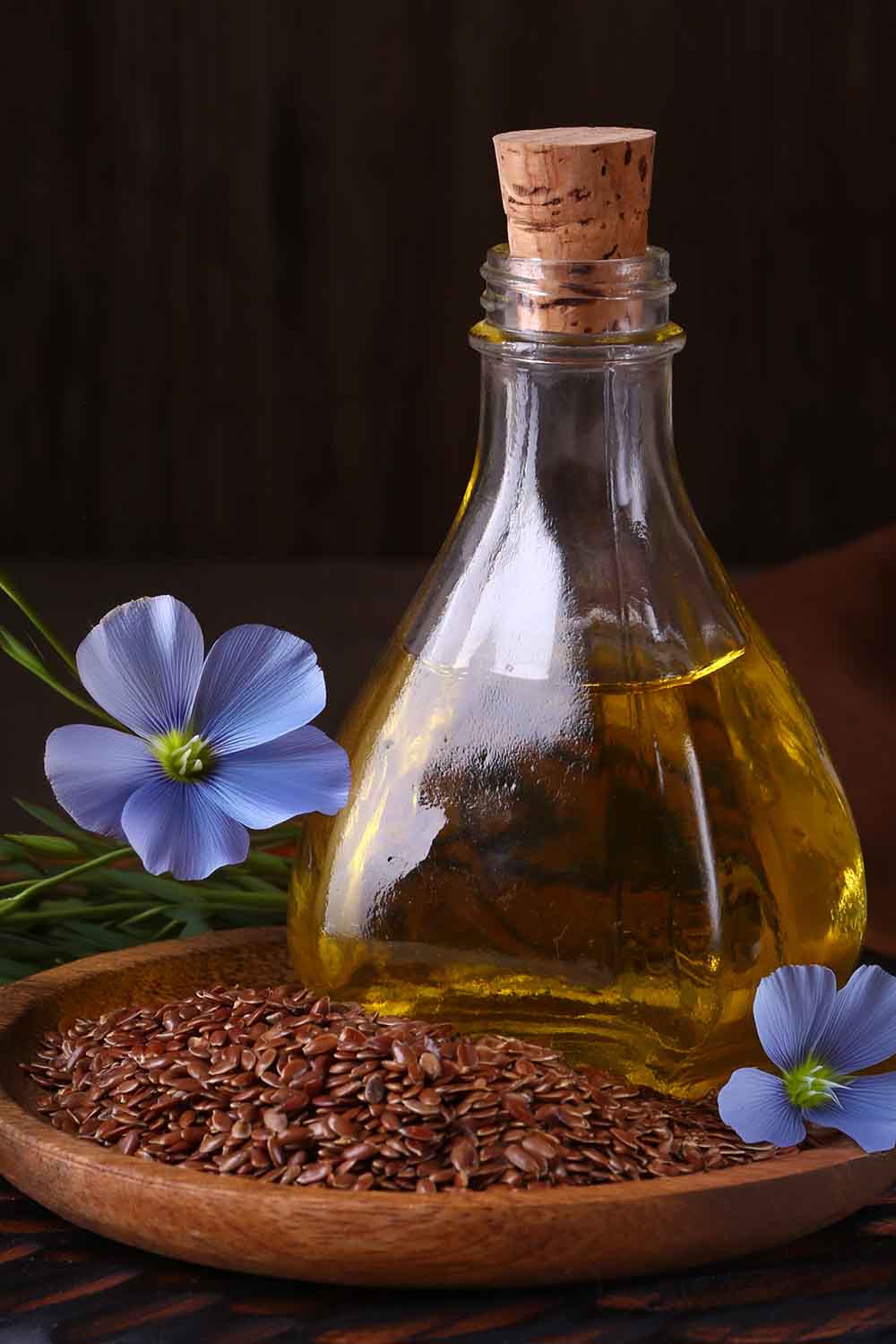Flaxseeds are regarded as one of the world's most potent plant foods. There is evidence that it can lower the risk of diabetes, cancer, heart disease, and stroke. For a little seed that has existed for centuries, that is a pretty high bar!
As early as 3000 BC, flaxseed was grown in Babylon. According to some academics, King Charlemagne enacted rules mandating his citizens to eat flaxseed in the eighth century because he was so certain of its health benefits. Thirteen centuries later, we have some initial evidence to support Charlemagne's suspicions.

The key nutrients of flaxseed are:
• Omega-3 essential fatty acids are ‘good’ fats with heart-healthy properties. There are roughly 1.8 gms of plant omega-3s in every tablespoon of ground flaxseed.
• Lignans possess antioxidant and plant estrogenic properties. Compared to other plant-based diets, flaxseed has 75–800 times more lignans.
• Both the soluble and insoluble forms of fibre are found in flaxseed.
Supplementing your diet with flaxseed
Although there is no set amount of flaxseed that is recommended, 1-2 tbsp daily is thought to be a healthy amount. 37 calories, 2 grammes of polyunsaturated fat (containing omega-3 fatty acids), 0.5 grams of monounsaturated fat, and 2 grammes of dietary fibre are included in one tablespoon of ground flaxseed.

Incorporating flaxseed into your diet:
Add to cereals, either hot or cold.
Incorporate in dishes like lasagna or burritos.
Stir into gravies, sauces, or chilli.
Sprinkle on smoothies or yoghurt.
Mix ground flaxseed into baked products like quick breads, cookies, and muffins.
When it comes to whole foods, flaxseeds (also known as linseeds) are among the most nutritious options available. Flaxseeds are incredibly high in fibre. They are among the best plant sources of fibre (27 per cent). Dietary fibre is crucial because it is good for the good bacteria in the stomach, which helps with digestion. Additionally, fibre aids in blood sugar regulation and weight loss.
An excellent source of lignans
Compared to cereal grains, legumes, fruits, and vegetables, flaxseed has 75–800 times more lignans. Similar in chemical structure to steroids, lignans have been demonstrated to reduce the risk of osteoporosis, menopausal symptoms, and heart disease. A few years ago, an observational research found that flaxseed's lignans helped lower the risk of breast cancer.
A fantastic vegan alternative to eggs
Flax is an excellent alternative to eggs, making it a vital tool for vegan bakers. Just combine three tablespoons of water with one tablespoon of milled flaxseed. You can use it in place of one egg in cakes and baked goods after letting it thicken for a quarter of an hour.

A great source of protein
Each 100-gm serving of flaxseed has about 18 grams of protein, which is significantly more than chia seeds. As a result, ground flax makes a great addition to protein smoothies and can even boost the protein level of cake or pancake mixes.
Excellent for blood sugar levels
Flax’s high soluble fibre content raises insulin levels and enhances insulin sensitivity in the body. There is evidence that it lowers blood sugar levels after meals. As a result, it is regarded as a low-glycemic meal, which means that it won't raise blood sugar levels. As such, it is a good option for people with diabetes and those on a low-GI diet.

A weight loss miracle
Flaxseeds include a lot of protein, which will decrease your appetite and keep you from overeating. Additionally, because they are low in sugar and starch, they will assist maintain a stable blood sugar level, avoiding the ‘sugar crash’ sensation and the resulting decrease in energy.
A versatile seed
Flaxseeds can be eaten right out of the package, toasted, or simply combined with water and dried in a dehydrator to make crackers. It is perfect for bread, cakes, cookies, snack bars, and trail mixes, and it can be used in both savoury and sweet recipes.

Rich in flax oil
Beneficial Omega-3 fatty acids are abundant in flax oil. It gives the body a great immunity boost and aids in the battle against autoimmune and neurological illnesses, cancer, diabetes, atherosclerosis, osteoporosis, arthritis, and cardiovascular disease. As if that weren't enough, it does wonders for your skin and hair as well!
Abundant healthy Omega fats
Flaxseed oil is the most abundant dietary source of beneficial Omega-3 fatty acids. These polyunsaturated fats are excellent for heart health and cholesterol reduction. All you need to get the recommended amount of Omega-3 is one tablespoon of ground flax every day.
Nutritionally, near-perfect!
In terms of nutrients, flaxseeds are probably the best thing you can give your body. It is a good mix of fibre, protein, vitamins, minerals, and healthy fats to improve your overall health. They are also really flavourful and fun to munch!